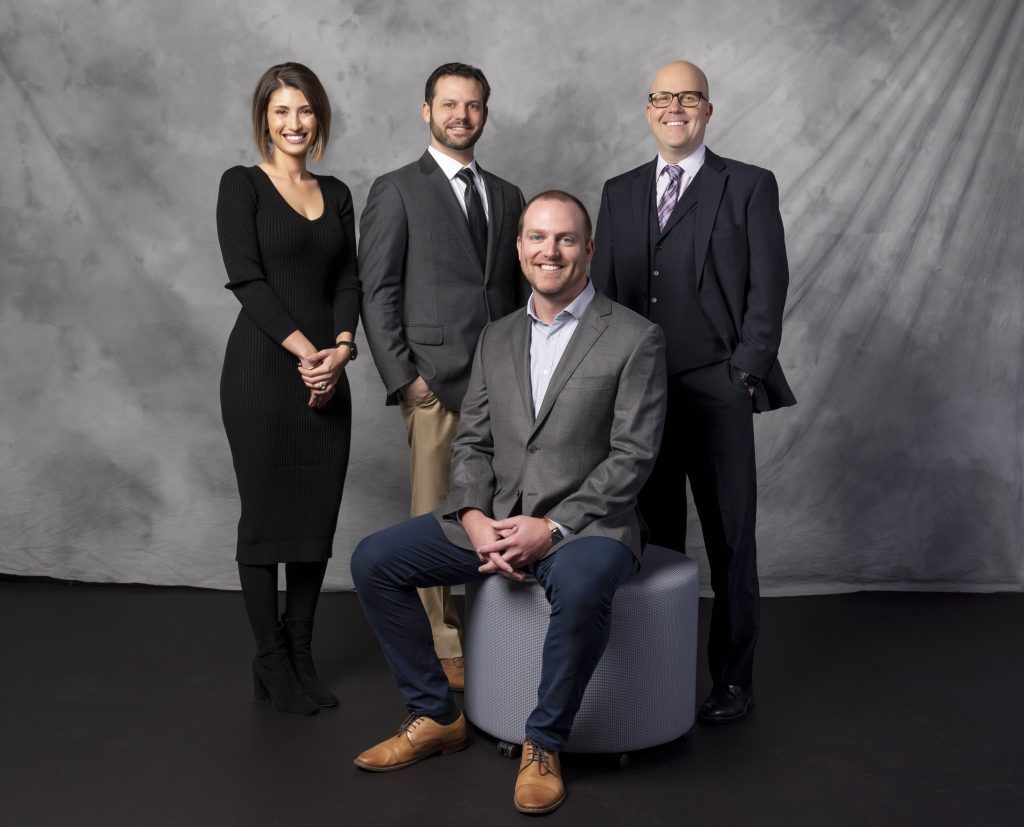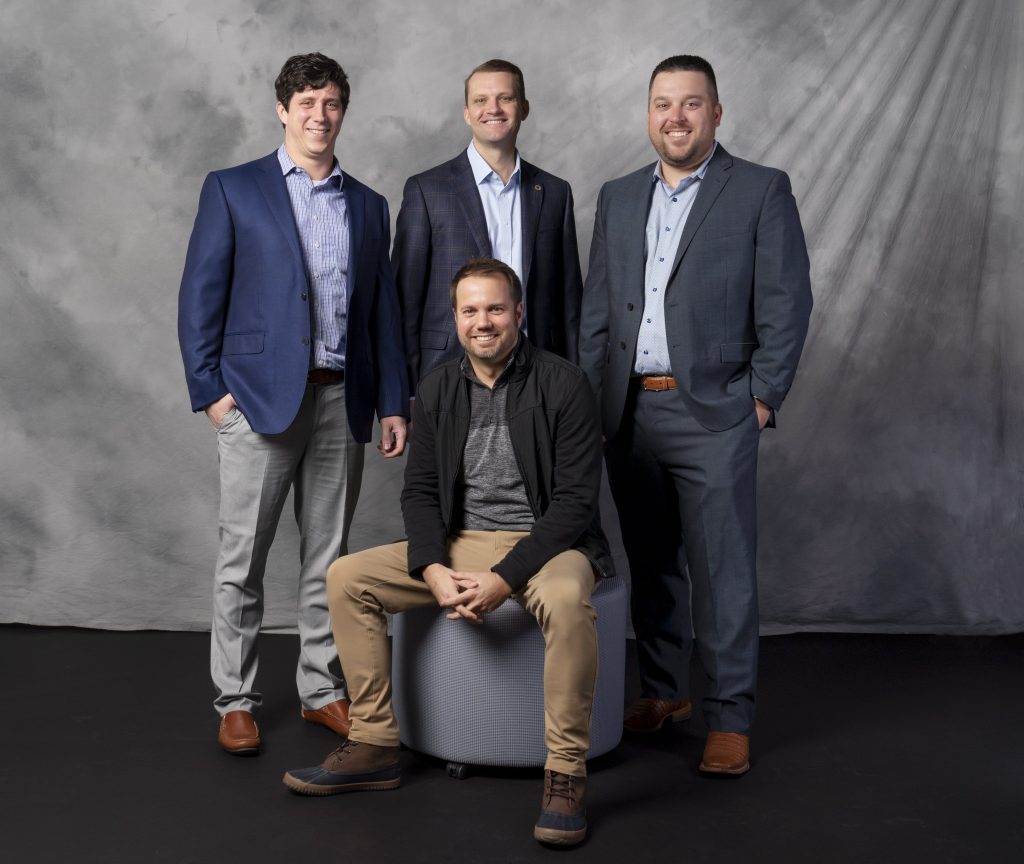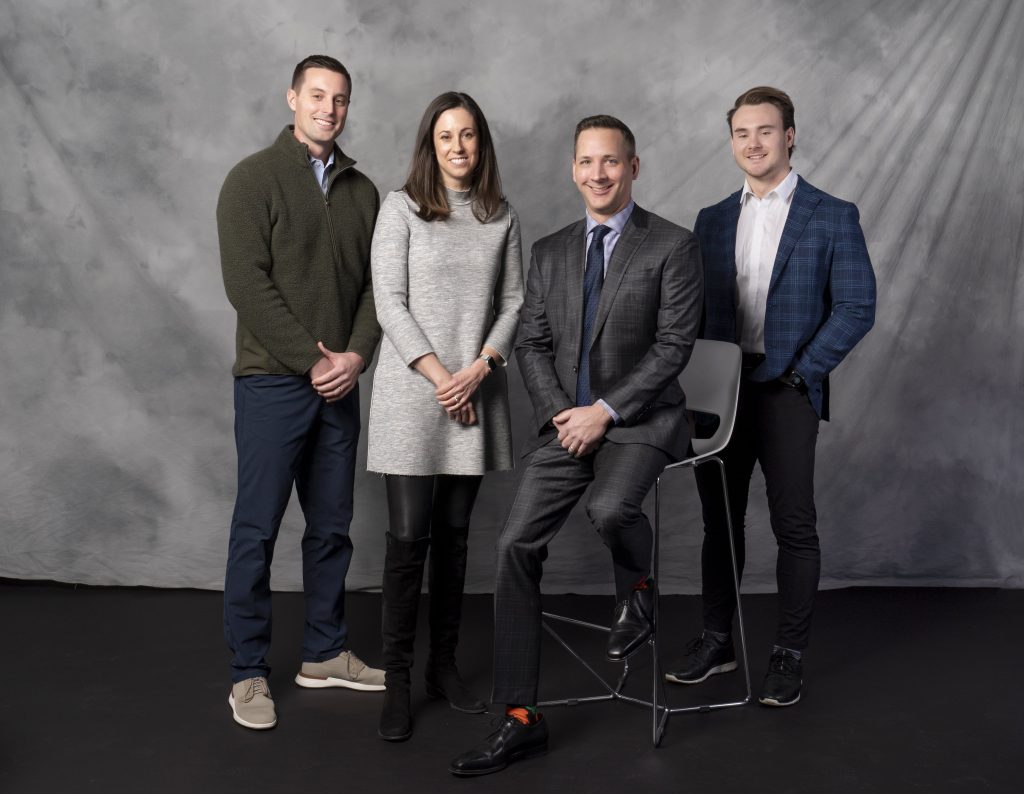Photos by L.G. Patterson
As the Columbia area continues to grow, business leaders are looking to better define the community and find a common vision for what’s needed to move forward.
Inside Columbia Publisher Emeritus Fred Parry and Zimmer Communications General Manager Carla Leible hosted a CEO Roundtable luncheon with 12 local young entrepreneurs and business leaders from a variety of industries. The event was sponsored by The Broadway Hotel with the hotel’s award-winning Chef Jeff Guinn catering the meal that accompanied the conversation.
The dozen young leaders present took the opportunity to discuss Columbia as it is now and what they would like to see happen in order to create the desired Columbia of the future.

Encouraging Growth
Over the past 50 years, Columbia has seen incredible growth, says Logan Gray, wealth management advisor with Merrill Lynch. But while people have been consistently moving to the area, Gray says it can feel like that growth is almost in spite of policy decisions made by local leaders. “We have these really nice amenities already in place, but how do we gather additional support from local officials to work with our businesses and encourage investment for the next 50 years?” Gray says. “I certainly think more can be done, especially in much needed infrastructure.”
Brian Burks, vice president at Emery Sapp and Sons, says his clients have been facing tough challenges in getting development proposals through the approval process in a timely manner, noting that it often takes a year or longer to get the proposal through local government agencies. In the past, he says, developers could get plans approved and built in the same time frame. The longer process makes it more expensive, and that added cost is getting passed down to the end user, Burks says. It also can leave young developers jaded and unwilling to make further investments in the Columbia area. “How do we continue to do what we’ve done in the past 50 years?” Burks asks.
David Coil, executive vice president of Coil Construction, says Columbia lacks the infrastructure needed to grow spatially and is constrained by city leaders and codes. And because there’s no real strategic plan in place to guide people on where to develop entertainment districts and industrial spaces, that type of growth will be difficult, Coil says. “But we can definitely improve quality of life still and create an identity, too,” Coil says.

Establishing An Identity
But what that identity is may still be in question. It’s something Columbia seems to struggle with these days, says Mark Miles, executive vice president at Orscheln Management Co. “Are we a large town or are we a small city?” Miles asks. “What do we aspire to be as a community and as a university city or town that brings so much to the entire state of Missouri?”
Travis Cook, CEO of Convergence Cos., says that is the crux of the issue when it comes to growth, as many business owners would like Columbia to be a city, while many residents likely are more comfortable as a town. “I don’t have the answer for how to fix that problem,” Cook says. “I think that lots of towns or cities our size struggle with that. Do we want to maintain and stay what we are or do we want to continue to build infrastructure, grow and be a place that entrepreneurs can be proud to be able to build and grow?”
But it doesn’t necessarily have to be a choice, says Drew Wilkinson, director of laboratory services, ambulance and emergency services at Boone Health. “You can be both,” Wilkinson says. “I think there are some pieces of this that we want to keep small and community-focused, but we’ve got to capitalize on the business side of things.”
Laura Cave, chief marketing officer for Paytient, spent most of her adult life working in New York City and sees Columbia’s strength as being its particular mix of small town attitude with big city amenities. “What I love about Columbia is the preservation of and fostering of original thought, of creativity, of truth-telling and journalism and entrepreneurial activity,” Cave says, noting that that’s where “our secret magic starts to come from.” She compares the area to an estuary, a place where saltwater and freshwater come together, creating a unique environment where many kinds of organisms can live. “It’s an extremely fruitful place because it’s a crossroads and because there’s mixing between people and different ideas,” Cave says. “I think that Columbia is actually a really compelling place to live.”

Taking the Lead
In order to build the future for Columbia that many business leaders hope to see, action needs to be taken. Matt Boyd, general manager of the Columbia branch of QuesTec Mechanical, suggests looking at Northwest Arkansas as an example of an area where business owners took the lead both to help define and develop the community. “They’re finding a way to make things work and they’re finding a way to grow things,” Boyd says, noting that they don’t wait for city officials and leaders to make the first move. They also don’t let the bureaucratic obstacles derail development, instead working together to find solutions. “The ownership is on the businesses,” he says. “We just have to support each other as businesses.”
The idea of that level of collaboration among business owners and entrepreneurs is exactly what John Hall wants to see more of in Columbia. Hall, chief strategist at Relevance, says too often, business leaders get stuck in their own worlds and neglect to reach out to the surrounding community. And that means the business community as a whole loses out. “We need to make an effort, make time for bringing people together, to connect the dots and connect talent,” Hall says. “It’s just unfortunate we get caught up in our own worlds and we can’t connect the dots.”
If business owners can more effectively communicate with each other, they’ll be able to do a better job of communicating overall needs to the city, and actually being heard. “If one person is complaining to the city and the council on these things, it means one thing,” Hall says. But if multiple business owners are saying the same thing, it sends a clear message that city officials can hear and respond to.
Megan Walters, Licensed Broker-Salesperson and Team Lead/Owner of the Walters Team, eXp Realty, says building connections with other business leaders and networking can help many young people be successful. She notes that networking with other business leaders like Hall and Nic Parks of Parks Amusements has helped her career, and both Hall and Parks have worked to foster those connections with the younger generation.
Brett Calhoun, Managing Director and Partner at Scale, says he’d like to see better connections between area students and local businesses, whether it’s through a business center or planned events. “There needs to be a better communication channel between startups and the university,” Calhoun says.
Scale is an accelerator fund and venture studio that Calhoun describes as a group of successful operators who support entrepreneurs in creating generational wealth. “In Columbia, we’re very siloed from other places like New York City. At Scale, we offer access to national network effects and knowledge sharing,” Calhoun says. “We have a network of investors and founders across the nation.”
Parks says young entrepreneurs need affordable space to work in, which is why he recently started a venture to provide rentable space downtown. “I’ll lose money, but it’s my gift to students and young single moms and people who need an office to go to work in,” Parks says. By providing the space needed at an affordable price, even if it means taking an overall loss, Parks says he also is hoping to make connections for future investments. “Maybe I will latch onto some of those entrepreneurs and have an opportunity to invest in their businesses,” he says.
Cave, Paytient’s chief marketing officer, says connecting the dots between educational institutions, businesses and civic leaders, as well as startup funding, could make Columbia the laboratory for entrepreneurial innovation. “There are so many sprouts of that already happening,” Cave says.


